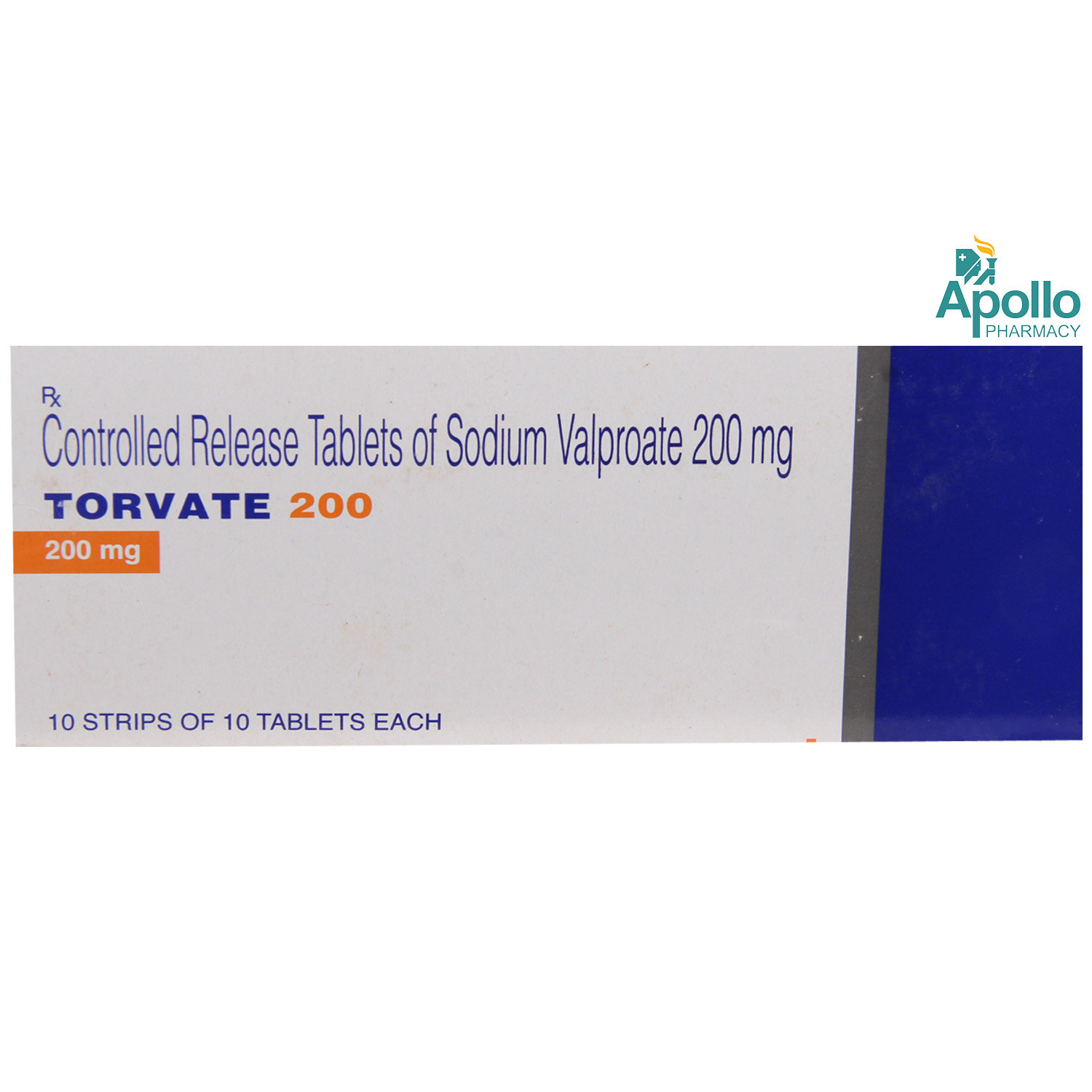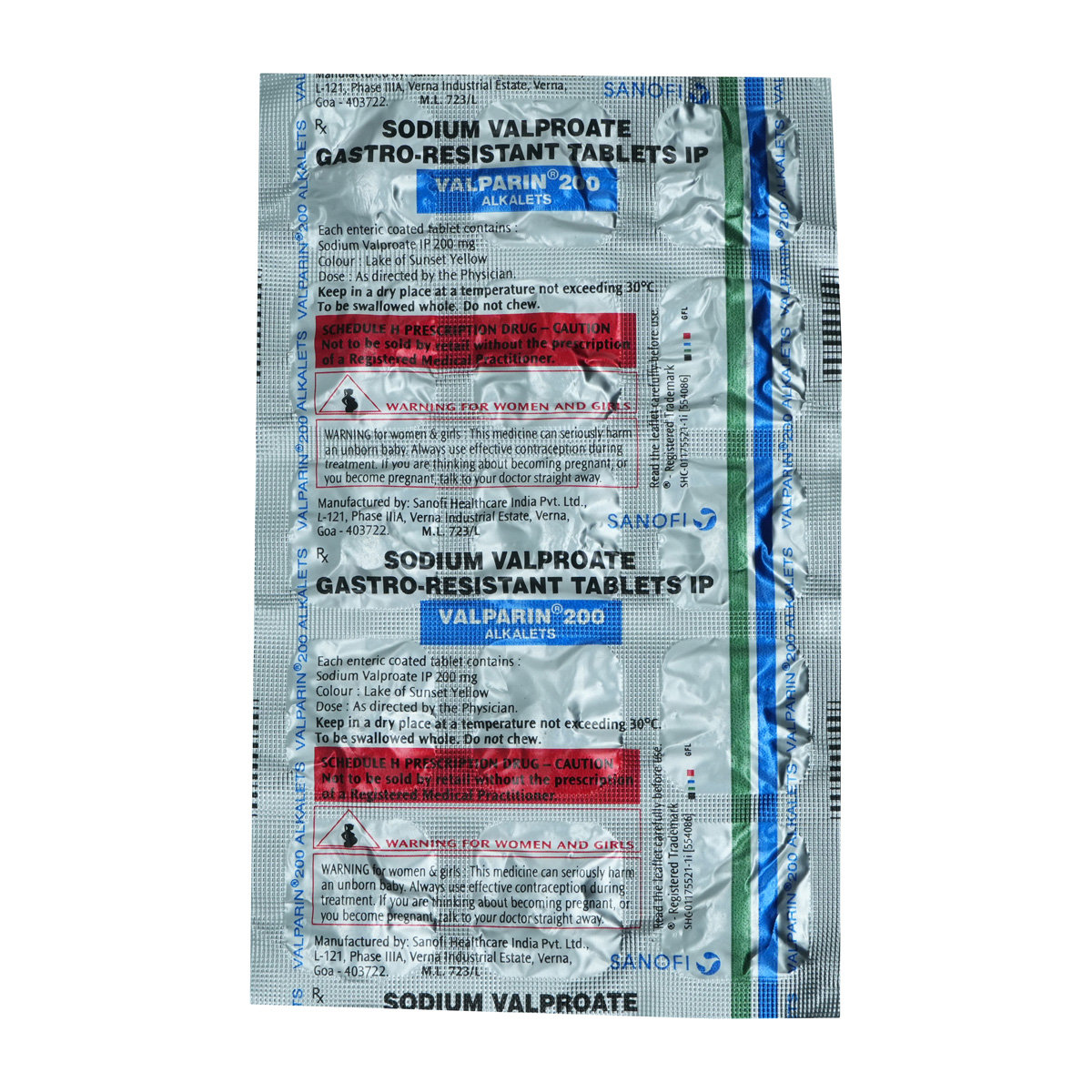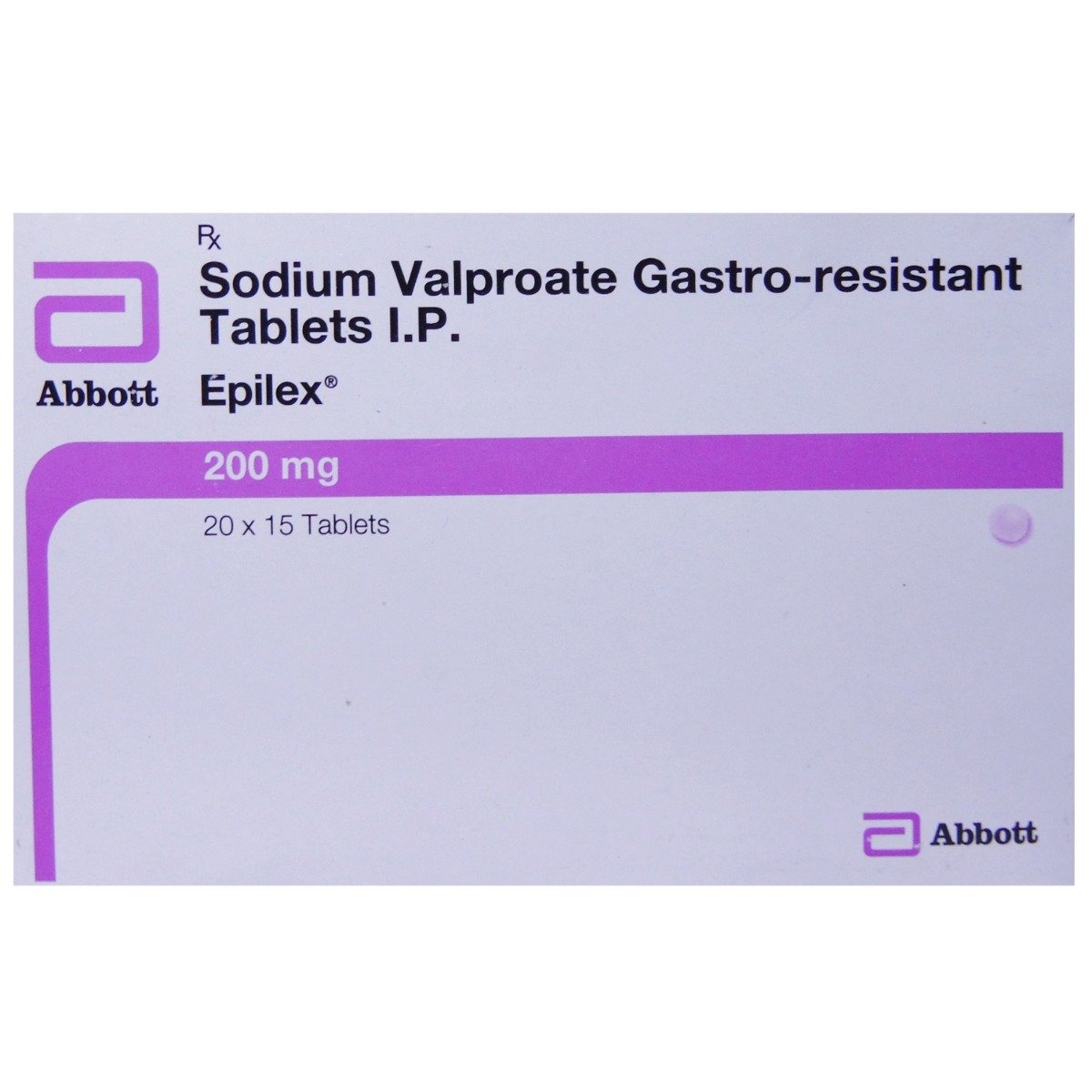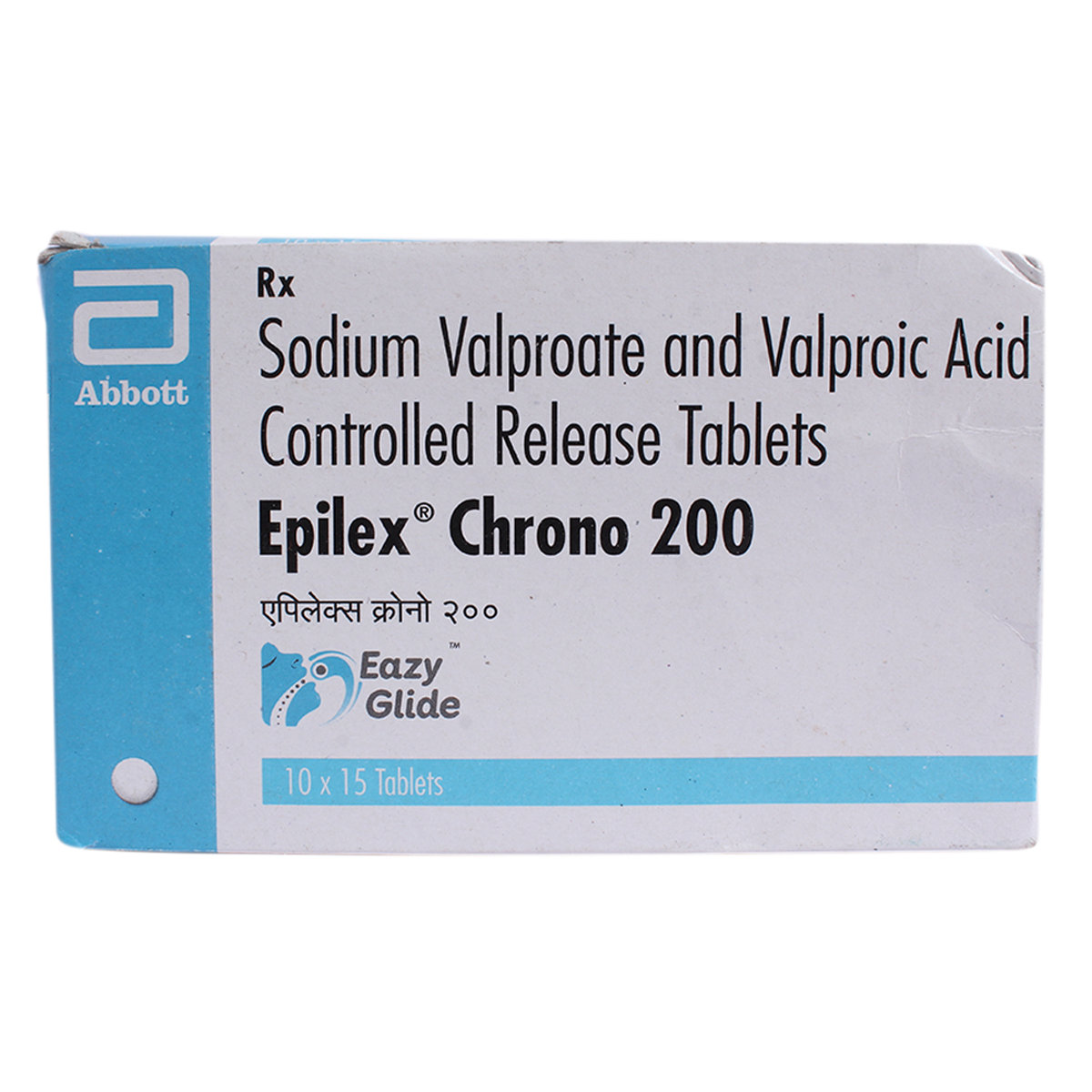Valponol-200Mg Tablet 10'S


MRP ₹38
(Inclusive of all Taxes)
₹5.1 Cashback (15%)
Provide Delivery Location
Online payment accepted
 Prescription drug
Prescription drugWhats That
Composition :
Manufacturer/Marketer :
Consume Type :
Return Policy :
Expires on or after :
About Valponol-200Mg Tablet
Valponol-200Mg Tablet belongs to the group of medicines called anticonvulsants or anti-epileptics used to treat epilepsy/seizures/fits. Additionally, Valponol-200Mg Tablet is also used to treat bipolar disorder and prevent symptoms of migraine (like a headache). Epilepsy is a sudden rush of electricity in the brain. In epilepsy, the brain's electrical rhythms become imbalanced, resulting in recurrent seizures, sometimes leading to an unconscious state.
Valponol-200Mg Tablet contains 'Sodium valproate', which decreases the excessive and abnormal nerve activity in the brain. Thereby helps in controlling seizures. Valponol-200Mg Tablet increases the amount of a chemical substance called GABA; this helps block the nerve transmission across the brain and provides a calming effect. Thereby helps treat bipolar disorder.
You can take Valponol-200Mg Tablet with or without food. You are advised to take Valponol-200Mg Tablet for as long as your doctor has prescribed it for you depending on your medical condition. In some cases, you may experience certain common side-effects such as stomach pain, nausea, vomiting, dry mouth, tremors, tiredness, sleepiness, headache, weight gain, and hair loss. Most of these side-effects do not require medical attention and will resolve gradually over time. However, you are advised to talk to your doctor if you experience these side-effects persistently.
Please do not stop taking Valponol-200Mg Tablet without consulting your doctor to avoid worsening of seizures. Contact your doctor if your child gets her first-period whilst on treatment with Valponol-200Mg Tablet . Do not take Valponol-200Mg Tablet if you are pregnant as it could cause serious congenital disabilities. If you are of child-bearing age, use effective contraception while taking Valponol-200Mg Tablet . Consult your doctor before taking Valponol-200Mg Tablet if you are breastfeeding. Do not drive or operate machinery as Valponol-200Mg Tablet may cause drowsiness and dizziness. Avoid consuming alcohol along with Valponol-200Mg Tablet as it could lead to increased dizziness and sleepiness.
Uses of Valponol-200Mg Tablet
Directions for Use
Medicinal Benefits
Valponol-200Mg Tablet belongs to a group of anticonvulsants or anti-epileptics used to treat epilepsy (fits). Additionally, Valponol-200Mg Tablet is also used to treat bipolar disorder and prevent migraine headaches. Valponol-200Mg Tablet decreases the excessive and abnormal nerve activity in the brain, thereby controlling seizures. Valponol-200Mg Tablet is used to treat both localized (seizures which affect only a part of the brain) and generalized seizures (seizures which affect the entire brain).
Storage
Drug Warnings
Do not take Valponol-200Mg Tablet if you are allergic to any of its contents; if you have liver problems, porphyria, urine-related problems (like urea cycle disorder), diabetes, immune system disorder or kidney problems. Consult your doctor immediately if you experience suicidal tendencies while taking Valponol-200Mg Tablet . Contact your doctor if your child gets her first period during the treatment with Valponol-200Mg Tablet . Do not take Valponol-200Mg Tablet if you are pregnant unless prescribed by the doctor as it is pregnancy category C medicine and can cause serious congenital disabilities. Consult your doctor before taking Valponol-200Mg Tablet if you are breastfeeding. Valponol-200Mg Tablet may cause drowsiness and dizziness, so drive only if you are alert. Avoid consuming alcohol along with Valponol-200Mg Tablet as it could lead to increased dizziness and sleepiness.
Diet & Lifestyle Advise
- A ketogenic diet (low in carbohydrates and high in fats) is recommended for children with epilepsy. This diet helps in utilizing fat instead of glucose for the generation of energy.
- Atkins diet (high fat and controlled carbohydrates) is recommended for adolescents and adults.
- Exercising regularly helps in maintaining weight and improving overall health.
- Rest well; get plenty of sleep.
- Avoid smoking and alcohol consumption.
- Meditation and yoga can help lower stress, decrease pain sensitivity and improves coping skills.
- Have a seizure response plan that helps those around you know what to do.
- Prepare your living area; small changes may help in reducing the risk of physical injury during a seizure.
- Understand what triggers seizures and try reducing or avoiding them.
- Please pay attention to overall health as it can help in reducing seizure activity.
- Install an alarm or emergency device to get assistance during a seizure attack.
Side Effects of Valponol-200Mg Tablet
- Stomach pain
- Nausea
- Vomiting
- Dry mouth
- Tremors
- Tiredness
- Sleepiness
- Headache
- Weight gain
- Hair loss
Habit Forming
Therapeutic Class
Product Substitutes
Author Details
We provide you with authentic, trustworthy and relevant information
FAQs
Valponol-200Mg Tablet decreases the excessive and abnormal nerve activity in the brain. It balances the brain's chemical messenger and prevents overactivity of the brain, thereby controlling seizures episodes.
Valponol-200Mg Tablet helps to treat manic episodes associated with bipolar disorder by increasing the amount of a chemical substance called GABA; this helps in blocking the nerve transmission across the brain and provides a calming effect.
Valponol-200Mg Tablet limits the transmission of nerve pain, thereby prevents migraine headache. Migraine is a neurological condition which is characterized by intense headaches.
Do not discontinue Valponol-200Mg Tablet without consulting your doctor. To treat your condition effectually, continue taking Valponol-200Mg Tablet for as long as prescribed. Do not be reluctant to speak with your doctor if you experience any difficulty while taking Valponol-200Mg Tablet ; your doctor will reduce the dose gradually to avoid worsening of seizures.
Birth-control pills like oestrogen-containing products may affect the way Valponol-200Mg Tablet works. It is better to consult the doctor if you are using birth control pills to avoid pregnancy.
Valponol-200Mg Tablet may cause weight gain due to an increase in appetite. Maintain a healthy weight by following a proper diet and exercising regularly.
Valponol-200Mg Tablet might cause fertility issues in both men and women. However, it can be reversible upon discontinuation of Valponol-200Mg Tablet . In rare cases, Valponol-200Mg Tablet can be a contributing factor in male infertility.
Limit caffeine intake, avoid smoking and mouthwashes containing alcohol, drink water regularly, and chew sugar-free gum/candy might prevent dry mouth.
Valponol-200Mg Tablet may change the results of liver enzymes, and urine and blood tests. Inform the person doing the tests that you are taking Valponol-200Mg Tablet .
Drug-Drug Interactions Checker List
- ASPIRIN
- PHENOBARBITAL
- PHENYTOIN
- PRIMIDONE
- CARBAMAZEPINE
- TOPIRAMATE
- ACETAZOLAMIDE
- LAMOTRIGINE
- FELBAMATE
- WARFARIN
- ZIDOVUDINE
- LOPINAVIR
- RITONAVIR
- MOCLOBEMIDE
- SELEGILINE
- LINEZOLID
- AMITRIPTYLINE
- SERTRALINE
- QUETIAPINE
- OLANZAPINE
- RISPERIDONE
- NIMODIPINE
- PROPOFOL
- ESTROGEN
- LEVONORGESTREL
- MEFLOQUINE
- CHLOROQUINE
- CIMETIDINE
- IMIPENEM
- MEROPENEM
- RIFAMPICIN
- ERYTHROMYCIN
- CLONAZEPAM
- DIAZEPAM
- CHOLESTYRAMINE
Special Advise
- Contact your doctor if your child gets her first-period whilst on treatment with Valponol-200Mg Tablet .
- Valponol-200Mg Tablet might affect blood and urine tests. Inform the person doing the tests that you are taking Valponol-200Mg Tablet .
- If you are of child-bearing age, use effective contraception without interruptions during your entire treatment with Valponol-200Mg Tablet .
- Consult your doctor immediately if you become pregnant while taking Valponol-200Mg Tablet .
Disease/Condition Glossary
Epilepsy: Epilepsy is a sudden rush of electricity in the brain. It is a disorder of the nervous system which occurs due to disturbed nerve cell activity in the brain. In epilepsy the brain's electrical rhythms become imbalanced, resulting in recurrent seizures. In patients with seizures, the typical brain electrical pattern is disrupted by sudden bursts of electrical impulses that affect an individual's consciousness, movements or sensations. Seizures are of two types: generalized and partial seizures. Generalized seizures affect the entire brain, whereas partial seizures affect only a part of the brain. Seizures can cause uncontrollable muscle twitches and spasms. Stronger seizures may cause people to become confused or unconscious. Possible causes include high fever, trauma, genetic disorder, brain injury or stroke.
Bipolar disorder: Bipolar disorder, also known as manic depression or bipolar disease, is a mental health disorder associated with episodes of mood swings ranging from manic highs to depressive lows.

Have a query?
Buy best C.n.s Drugs products by
Intas Pharmaceuticals Ltd
Sun Pharmaceutical Industries Ltd
Torrent Pharmaceuticals Ltd
Alkem Laboratories Ltd
Abbott India Ltd
Cipla Ltd
Alteus Biogenics Pvt Ltd
Micro Labs Ltd
Lupin Ltd
Ipca Laboratories Ltd
D D Pharmaceuticals Pvt Ltd
Icon Life Sciences
Mankind Pharma Pvt Ltd
Tripada Healthcare Pvt Ltd
Arinna Lifesciences Ltd
Linux Laboratories Pvt Ltd
East West Pharma India Pvt Ltd
La Renon Healthcare Pvt Ltd
Talent India Pvt Ltd
Tas Med India Pvt Ltd
Zydus Healthcare Ltd
Cnx Health Care Pvt Ltd
Eris Life Sciences Ltd
Leeford Healthcare Ltd
Emcure Pharmaceuticals Ltd
Macleods Pharmaceuticals Ltd
Sigmund Promedica
Aristo Pharmaceuticals Pvt Ltd
Dr Reddy's Laboratories Ltd
Troikaa Pharmaceuticals Ltd
Consern Pharma Ltd
Zydus Cadila
Shine Pharmaceuticals Ltd
Wockhardt Ltd
Ardent Life Sciences Pvt Ltd
Crescent Formulations Pvt Ltd
Theo Pharma Pvt Ltd
Reliance Formulation Pvt Ltd
Ikon Pharmaceuticals Pvt Ltd
Propel Healthcare
Neon Laboratories Ltd
Jagsam Pharma
Msn Laboratories Pvt Ltd
Morepen Laboratories Ltd
Pulse Pharmaceuticals
Sanofi India Ltd
Med Manor Organics Pvt Ltd
Hetero Healthcare Pvt Ltd
Novartis India Ltd
Crescent Therapeutics Ltd
Elder Pharmaceuticals Ltd
Solvate Laboratories Pvt Ltd
Akumentis Healthcare Ltd
Mova Pharmaceutical Pvt Ltd
Psyco Remedies Ltd
Tripada Lifecare Pvt Ltd
Ajanta Pharma Ltd
Cyrus Remedies Pvt Ltd
Medishri Healthcare Pvt Ltd
Cadila Healthcare Ltd
Glenmark Pharmaceuticals Ltd
Matteo Health Care Pvt Ltd
Hbc Life Sciences Pvt Ltd
Lyf Healthcare
Matias Healthcare Pvt Ltd
Mesmer Pharmaceuticals
Alembic Pharmaceuticals Ltd
Capital Pharma
Crescent Pharmaceuticals
Medopharm Pvt Ltd
Alniche Life Sciences Pvt Ltd
Kivi Labs Ltd
Talin Remedies Pvt Ltd
USV Pvt Ltd
Quince Lifesciences Pvt Ltd
Solis Pharmaceuticals
Infivis Life Care
Zuventus Healthcare Ltd
Cadila Pharmaceuticals Ltd
Pfizer Ltd
Wallace Pharmaceuticals Pvt Ltd
A N Pharmacia Laboratories Pvt Ltd
Blue Cross Laboratories Pvt Ltd
Jenburkt Pharmaceuticals Ltd
Lia Life Sciences Pvt Ltd
Mano Pharma
Medley Pharmaceuticals Ltd
Primus Remedies Pvt Ltd
FDC Ltd
Maneesh Pharmaceuticals Ltd
Apex Laboratories Pvt Ltd
Gagnant Healthcare Pvt Ltd
Ozone Pharmaceuticals Ltd
RPG Life Sciences Ltd
Strides Shasun Ltd
Unichem International
GlaxoSmithKline Pharmaceuticals Ltd
Kuresys Labs Pvt Ltd
LA Pharma
Trion Pharma India Llp
Alcohol
Unsafe
Avoid consumption of alcohol while taking Valponol-200Mg Tablet as it may cause increased dizziness and sleepiness.
Pregnancy
Unsafe
Valponol-200Mg Tablet belongs to pregnancy category D. Avoid taking Valponol-200Mg Tablet if you are pregnant as it could lead to serious birth defects.
Breast Feeding
Caution
Valponol-200Mg Tablet may pass into breastmilk. Consult your doctor before taking Valponol-200Mg Tablet if you are breastfeeding.
Driving
Unsafe
Valponol-200Mg Tablet causes dizziness, sleepiness and tiredness. Do not drive or operate machinery unless you are alert.
Liver
Unsafe
Valponol-200Mg Tablet should not be used if you have liver problems or your family has a history of liver problems. Please consult your doctor if you have any concerns regarding this.
Kidney
Caution
Dose adjustment may be needed in patients with kidney impairment. Please consult your doctor if you have kidney impairment or any concerns regarding this.
Children
Safe if prescribed
Valponol-200Mg Tablet can be given to children if prescribed by the doctor. The dose will be adjusted by the doctor depending upon the child's body weight.














_0.jpg?tr=q-85)

